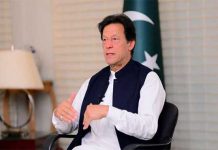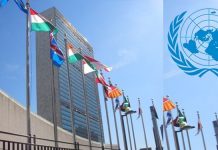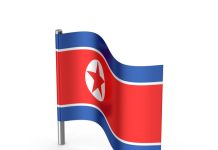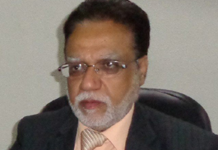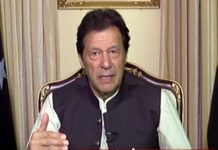LONDON: Attacks by the Taliban and other militant groups are having a devastating impact on education in Pakistan, Human Rights Watch said in a new report released a day before the Second International Conference on Safe Schools in Buenos Aires, Argentina.
Pakistan faces significant education challenges, with an estimated 25 million children out of school. The report includes testimonies on how militant violence has disrupted the education of hundreds of thousands of children, particularly girls.
“The Taliban and other militants have repeatedly committed horrific attacks on Pakistani schools, depriving students of their lives as well as their education,” said Bede Sheppard, child rights deputy director at the Human Rights Watch. “These audacious attacks often occur because, too often, authorities have protected militants or failed to properly prosecute them, and this needs to change.”
The Pakistani government should take urgent steps to make schools safer, and fairly prosecute those responsible for attacks against schools, students, and teachers, the Human Rights Watch said.
The 71-page report, ‘Dreams Turned into Nightmares: Attacks on Students, Teachers and Schools in Pakistan’, is based on 48 interviews with teachers, students, parents and school administrators in Pakistani provinces of Punjab, Sindh, and Khyber Pakhtunkhwa (KP). It documents attacks by militants from January 2007 to October 2016 that have destroyed school buildings, targeted teachers and students, and terrorised parents into keeping their children out of school. These attacks have often been directed at female students and their teachers and schools, blocking girls’ access to education. The report also examines occupation of educational institutions by political groups and criminal gangs.
Militant groups in the country, including the Taliban, Lashkar-e-Jhangvi and their affiliates, use attacks on schools and universities to foster intolerance and exclusion, to target symbols of the government, and particularly to drive girls out of school. A Taliban commander claiming the attack on Bacha Khan University in KP in January 2016 said, “We will continue to attack schools, colleges, and universities across Pakistan, as these are the foundations that produce apostates.”
After the Taliban took over large parts of the Swat Valley in KP in 2007, they began a violent campaign against education for girls. More than 900 girls schools were forced to close and over 120,000 girls stopped attending school. About 8,000 female teachers were driven out of work. For many girls, the loss was permanent and they did not return to school even after the Pakistan Army had cleansed the areas of the Taliban.
The government does not collect specific data on the number of attacks on schools and universities, or the number of deaths and injuries from such attacks. However, according to the Global Terrorism Database, there were 867 attacks on educational institutions in Pakistan from 2007 to 2015, resulting in 392 fatalities and 724 injuries. The Global Coalition to Protect Education from Attack recorded at least 838 attacks on schools in Pakistan between 2009 and 2012, leaving hundreds of schools damaged. In December 2015, the Ministry for States and Frontier Regions (SAFRON) reported that in 2015, 360 schools were destroyed in three of the seven regions of the Federally Administered Tribal Areas (FATA).
The government’s failure to keep consistent and transparent national data on such attacks raises serious concerns about its ability to track repairs of damaged schools, identify trends that could inform protective measures, or investigate and prosecute the responsible individuals, the Human Rights Watch said.
Threats to education in Pakistan were spotlighted by the attacks on Malala Yousufzai on October 9, 2012, and the Army Public School in Peshawar on December 16, 2014. After the Peshawar attack, which killed 135 children, Prime Minister Nawaz Sharif announced a 20-point National Action Plan to comprehensively deal with terrorism, but none of the 20 points pertained to students or education, according to the report.
The Human Rights Watch said that Pakistan should develop a comprehensive policy for protecting students – especially girls – and teachers, schools, and universities from attacks, and engage all ministry staff concerned at the central and local levels in implementing the strategy.
Securing schools has been largely left to the provincial governments, and these efforts have been sporadic and vary across provinces, with little attention to the specific need to protect girls’ education, it said. “In most cases, responsibility for enhancing and maintaining security has been passed to school authorities. This has led to increased hardship and chaos.”
According to the report, criminal cases had sometimes been filed against teachers and principals for not taking security measures.
Despite hundreds of attacks on teachers, students and educational institutions, the Pakistani government has not successfully prosecuted the perpetrators in most instances, the Human Rights Watch said. This failure was highlighted in June 2015, when it was reported that eight out of the 10 individuals arrested and charged for the attack on Malala were acquitted, even after they all confessed to their role in court.
The report urged the central government to cooperate with provincial authorities to create an advance rapid response system whenever there are attacks on schools so that these facilities are quickly repaired or rebuilt and destroyed educational material is replaced so that “children can return to school as soon as possible”. During reconstruction, students should be provided education through alternative means and, where appropriate, given psychosocial support, it suggested.
The international non-governmental organisation said that Pakistan should endorse the Safe Schools Declaration, a non-binding political agreement opened for state support at an international conference in Oslo, Norway, in May 2015. Countries that endorse the Safe Schools Declaration pledge to restore access to education when schools are attacked, and undertake to make it less likely that students, teachers and schools will be attacked in the first place. They agree to deter such attacks by promising to investigate and prosecute crimes involving schools, and to minimise the use of schools for military purposes so they do not become targets.
“The Pakistani government should do all it can to deter future attacks on education, beginning with improving school security and providing the public reliable information on threats,” Sheppard said. “Attacks on education not only harm the students and families directly affected, but also have an incalculable long-term negative effect on Pakistani society.”

